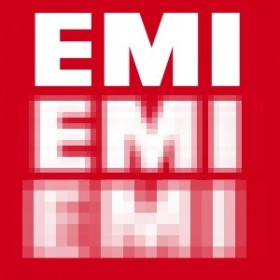EMI: Music’s Long Running Joke?
IIf you have been following the EMI-saga of recent months, you’ll know that it is owned by Citigroup, the international finance conglomerate with headquarters in New York. You’ll also know that Citigroup is hellbent on selling EMI, for one reason or another. The remaining members of the Big Four have all been touted as likely buyers, but it now seems that Warner Music is the frontrunner in the race to increase market share. As the London Guardian reported, it’s likely that this will see the end of the EMI label in the USA, whilst Warner would likely maintain the label’s perfunctory use in the UK.
Dan Sabbagh, writing in the London Guardian, took exception to the UK government’s apparent indifference to EMI’s sale. He argues that EMI’s catalogue represents 100 years of recording history and should not be broken up for the remaining Big Three to prosper. That’s all well and good, but I don’t know if EMI’s break up in itself represents such a loss to the music industry. It’s the content of the label’s catalogue that must be protected. The label has turned into a bit of a running joke within the music industry. It’s got the stage that the label’s reputation as a Big Four member is based, not upon the label’s own reputation or history, but upon the Beatles’ recording history, held in the label’s fragile clutches.
Sabbagh seems to think that the appropriate authorities, namely the secretary of state for culture, Jeremy Hunt, should perform some sort of noble action to prevent some vague and inconclusive evil from gripping the music industry.
The market is already in a bit of a mess, considering that there are only four real players in the game. Sorry, did I say four? EMI shouldn’t even count at the moment. In the clutches of Citigroup, it is as much a record label as it is a commodity. It’s not worth fussing over. No matter that it is the last big ‘British’ record label, as Sabbagh so patriotically claims, it is also owned by a bigger beast. That bigger beast is Citigroup, and its headquarters are in the United States of America, so claims about EMI’s Britishness are a bit of a misnomer.
To Sabbagh’s credit he offers more substantial arguments for government intervention than the above. He points to the threat to the economy – the threat to people’s pensions. It’s likely that EMI’s sale will result in thousands of job cuts, but that doesn’t mean that a sale can’t be a positive in the long run.
The pension fund represents nearly half a million pounds in costs. That is the reason for Warner’s low bid of $1.5 million for EMI, in spite of the company’s reported £3bn worth.
But pensions aside, is EMI really contributing to the music industry in its current state? Is there an alternative to breaking it up? Sabbagh’s article is perhaps the most morally relevant piece written on the music industry’s long running joke, but, short of nationalising EMI, does he present any viable solution to the joke?
In fact, it’s no longer a joke for the music industry, and Dotted Music is first in line to argue that it is now very much a crisis. Thankfully Sabbagh has drawn attention to that.
Samuel Agini is the editor of Andrew Apanov’s Dotted Music.



Comments